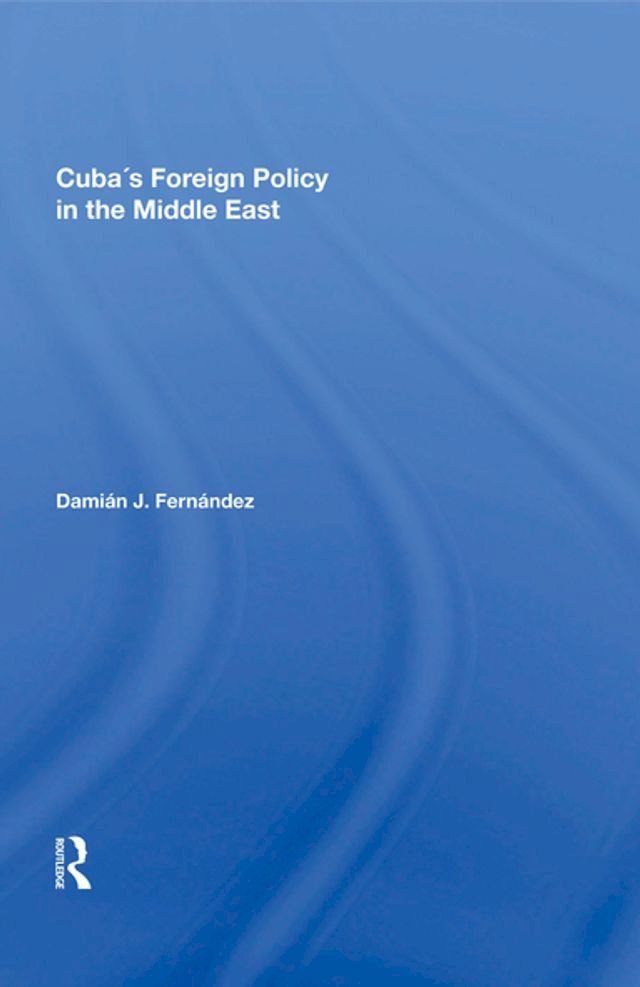作者: | |
ISBN: | 9780429712739 |
出版社: | |
出版日期: | 2021/11/18 |
內文簡介
In spite of the growing academic interest in Cuba's international relations in the revolutionary period. Cuba's policy toward the Middle East has been a neglected field of study. Although the Middle East has not been a high priority item on Fidel Castro's agenda, various factors have combined to propel the regime into taking a more active stance in the region, not least of which is the importance of the Middle East to the Soviet Union. Some of these factors have been ideological, such as the nature of Castroism itself. Other factors have been more pragmatic: the need to increase Cuba's leverage with the Soviet Union; the desire to establish spheres of interest of its own in the Third World; the attempt to use external politics to soothe internal problems and the wish to maximize the prestige of the Cuban revolution, and, by extension, that of its lider maximo. Since 1959, Havana's Middle Eastern policy has experienced four stages: (1) 1959-1973: Autonomous foreign policy, marked by a dual relationship with both Israel and the Arab states. (2) 1973-1977: Accommodation to the Soviet line; anti-Israeli policy combined with an expansion of relations with progressive states, signalled by the establishment of Cuban military missions. (3) 1977-1980: Activist policy in the region, expanded role and development of diplomatic relationships. (4) 1981 to the present (1985): Cautious involvement; restrained activism, emphasizing socio-economic cooperation. Cuba's incursion into the Arab world illuminates how Cuban foreign policy works, especially in relation to autonomy, convergence, and subordination; dependence, pragmatism, and ideology. The island's entrance into Middle East politics has introduced new risks into the island's foreign policy in return for the benefits which have been derived. A theory to explain Cuba's foreign policy in its interaction with the Soviet Union in the Third World must include heretofore neglected variables: time; regime type; and factionalism (bureaucratic politics), in addition to external events. The study of Cuba's initiatives in the Middle East will serve to test this theory.
Kobo 電子書 購買注意事項如下:
(一)如果您是第一次購買Kobo電子書的顧客,請依以下兩種購買方式擇一進行綁定:
1.PChome 24h 網頁版(https://24h.pchome.com.tw/):結帳後至顧客中心,確認訂單狀態,若為確認中,請稍候五分鐘,待訂單狀態變為訂單成立後,點選明細,在訂單資訊中點選〔內容〕,在彈跳視窗後點選〔去兌換〕,即可前往Kobo官網執行綁定及登入流程。
我的訂單/顧客中心 >訂單查詢> 訂單編號> 點選明細 > 訂單資訊 點選〔內容〕>彈跳視窗 點選〔去兌換〕即可前往Kobo官網執行綁定及登入流程。
2.PChome APP版:結帳後至顧客中心,確認訂單狀態,若為確認中,請稍候五分鐘,待訂單狀態變為訂單成立後,點選明細,在訂單資訊中點選[序號/軟體下載],並在彈跳視窗出現後點選〔下載連結〕,即可前往Kobo官網執行綁定及登入流程。
顧客中心> 訂單查詢> 訂單編號> 點選明細 > 訂單資訊 點選 [序號/軟體下載] >彈跳視窗 點選〔下載連結〕即可前往Kobo官網執行綁定及登入流程。
*進入Kobo官網後的綁定流程請參考如下:
(使用Kobo主帳號 登入/註冊)
1. 當您在PChome 24h 網頁版(https://24h.pchome.com.tw/)/PChome APP版,購買確認後,並依步驟跳轉到Kobo官網時,下滑點選〔更多登錄選項〕,由〔PChome〕後點選進入,同意後登入,並可以註冊Kobo主帳號進行綁定,完成後,所購買的書籍即會出現在Kobo APP/Kobo 閱讀器/Kobo官網內的我的書籍。(使用快速登入:FACEBOOK、GOOGLE、APPLE帳號登入)
2. 當您在PChome 24h 網頁版(https://24h.pchome.com.tw/)/PChome APP版,購買確認後,並依指示跳轉到Kobo官網時,點選〔FACEBOOK、GOOGLE、APPLE帳號登入〕擇一登入,同意後登入,並可以註冊Kobo主帳號進行綁定,完成後,所購買的書籍即會出現在Kobo APP/Kobo 閱讀器/Kobo官網內的我的書籍。(二)如果您是已經完成PChome與Kobo帳號綁定程序,非第一次購買Kobo電子書的顧客
1.PChome 24h 網頁版(https://24h.pchome.com.tw/):結帳後至顧客中心,確認訂單狀態,若為確認中,請稍候五分鐘,待訂單狀態變為訂單成立後,點選明細,在訂單資訊中點選〔內容〕,在彈跳視窗後點選〔去兌換〕,所購買的書籍即會出現在Kobo APP/Kobo 閱讀器/Kobo官網內的我的書籍。
2.PChome APP版:結帳後至顧客中心,確認訂單狀態,若為確認中,請稍候五分鐘,待訂單狀態變為訂單成立後,點選明細,在訂單資訊中點選[序號/軟體下載],並在彈跳視窗出現後點選〔下載連結〕,所購買的書籍即會出現在Kobo APP/Kobo 閱讀器/Kobo官網內的我的書籍。
- 退換貨:依樂天Kobo官方規範為準
- 僅能由 閱讀器以外 的裝置做會員帳號綁定
- 請注意,帳號綁定後:
* Kobo會更新您的帳戶詳細資料
* 您將能在Kobo APP/Kobo 閱讀器/Kobo官網中查看所有書籍
* 帳號綁定後,您可以使用任一帳戶登入 Kobo
* 完成第一次串接時,請登出所有裝置,約等待5分鐘後再登入即可查看您的書籍
* 重新登入後,原帳戶中的書籍如有畫線註記和收藏將有遺失的可能。登出前,請務必先行拍照備份
* 若您有任何相關疑問請至Kobo官方網站 https://help.kobo.com/hc/zh-tw 並到頁面最下方點選“聯繫我們”


